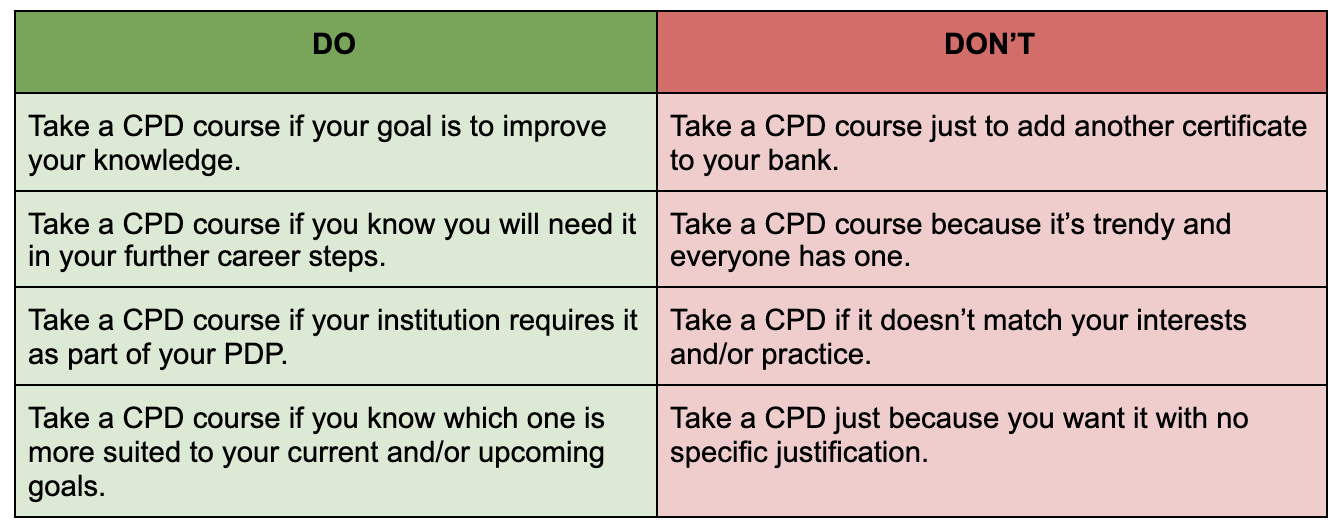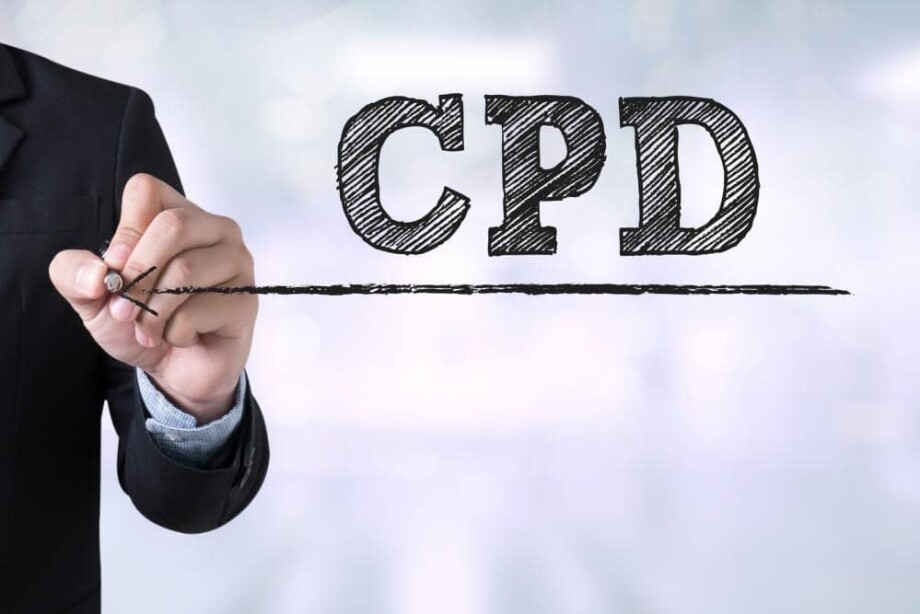First, let’s understand what CPD is. Well, it’s widely known as Continuous Professional Development. In other words, it’s the learning process that every educator passes through years of teaching, attending various professional development courses and workshops beyond the initial teaching qualification.
As in any other profession, professional development is vital in sustaining the skills that we have, as well as upgrading and updating them to go hand in hand with the development of the technology and the emerging new methodologies and approaches. CPD gives us a chance to:
- Grow our knowledge in our professional field.
- Be more competitive in the market.
- Take our teaching to the next level.
- Boost our self-assurance in what we are doing.
- Identify our weak spots and work on them.
- Reflect on our past and set goals for the future.
It’s not a secret, that we, teachers are so busy most of the time, that little to no time is left for self-learning and development. This being true, we should, however, bear in mind that times are changing, resources and tools are being updated, new platforms and forms of education are emerging (blended, online classes, etc.) and they all need to be assimilated if we want to feel good about our teaching.
There are schools and educational institutions that make it a part of their company policy to make teachers attend CPD courses and training events. They do it to support staff engagement in recent changes and keep them informed about the new things happening in the field. As a result, they track employee attendance and make it obligatory. If you think about this, it is quite saddening as CPD should be something that doesn’t need a push to be done. The underlying idea is that each teacher should understand its need and take responsibility for their own learning and development not to mention the fact that ‘made-to-go’ training events might not match everyone’s needs and expectations. Here is where the importance of a self-planned and personalized CPD comes to light.
«Why personalized?» you would ask. Well, as every student and learner have their own strengths and weaknesses, background knowledge, experience, and prior qualification, the teachers as well are not an expectation. To save time, to be more target-oriented and focused on the outcome rather than receiving a certificate of attendance, it is important to tailor a specific development plan for every teacher. This can be done with the help of the institution a teacher is working for or based on their own judgment. In either case, as long as the target is identified, the goal will be much easier to achieve.
There are different types of CPD courses available globally. We all know the famous CELTA, TKT, DELTA qualifications, etc. Among others, you will find more specific courses, like CELTA Extension for Teaching Kinds, SIGs (special interest groups), etc. Before choosing what qualification you want to do, ask these questions to yourself:
Why do I need this?
Is this because I want to improve my knowledge and experience or because it looks good on my resume or most of my colleagues have done it.
How does it apply to my current teaching context?
How will I apply the knowledge I get to my current teaching practice? How will it help to make my sessions and the understanding of the whole process more effective? Does the course match the needs of my current expertise?
When do I need to do it?
Is it something urgent? Is it demand from the company management? Am I going to apply for a new job or change positions or I can relax and take time to think about other possible opportunities and weigh up my options
Answering these questions will help you set better goals and do better upfront planning.
Finally, what are some DOes and DON’Ts that we should consider when working on our CPDs?

If we try to sum up, one thing should be highlighted. CPD is an ongoing process, it’s a continuous learning development, it’s not a training or a one-time event, it’s a lifelong process that takes time, energy, and money. So, choose wisely, set clear goals, pay attention to your growth not only when attending special courses but also on a daily basis by reflecting on your skills and areas of improvement.






 Вероника Аветисян
Вероника Аветисян 
 Маргарита Аветисян
Маргарита Аветисян 


